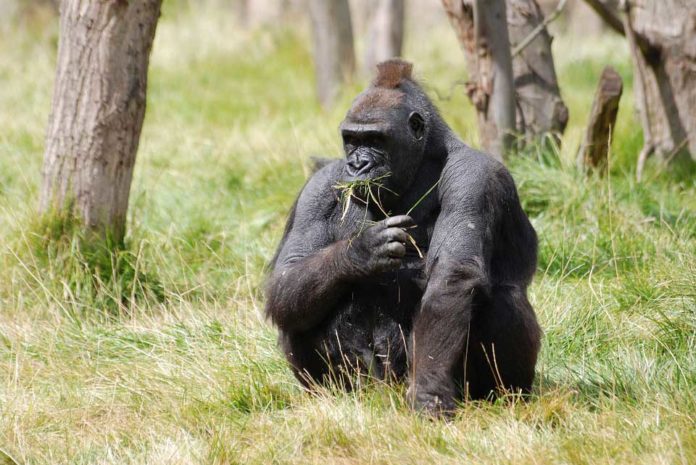A new study conducted by the anthropologists at Northwestern University suggests that males have more noteworthy reproductive success in the event that they invest more time taking care of children—and not really just their own.
Past study has also suggested that wild male mountain gorillas living in Rwanda do something that is quite unusual for a mammal. The gorillas are used to take care of all of the kids that live in their social group, regardless of whether they are the father.
In this new study, scientists are keen to know the reason behind it.
According to Stacy Rosenbaum, lead author of the study, “Mountain gorillas and humans are the only great apes in which males regularly develop strong social bonds with kids, so learning about what mountain gorillas do and why helps us understand how human males may have started down the path to our more involved form of fatherhood.”
“We’ve known for a long time that male mountain gorillas compete with one another to gain access to females and mating opportunities, but these new data suggest that they may have a more diverse strategy. Even after multiple controls for dominance ranks, age and the number of reproductive chances they get, males who have these bonds with kids are much more successful.”
Christopher Kuzawa, a co-author of the study, said “the findings run counter to how we typically think of male mountain gorillas—huge, competitive and with reproduction in the group dominated by a single alpha male.”
“Males are spending a lot of time with groups of kids—and those who groom and rest more with them end up having more reproductive opportunities. One likely interpretation is that females are choosing to mate with males based upon these interactions.”
Rosenbaum said, “This research suggests an alternative route by which fathering behaviors might have evolved in our own species.”
“We traditionally have believed that male caretaking is reliant on a specific social structure, monogamy because it helps ensure that males are taking care of their own kids. Our data suggest that there is an alternative pathway by which evolution can generate this behavior, even when males may not know who their offspring are.”
Meanwhile, there is a possibility that similar behaviors could have been important in the initial establishment of fathering behaviors in distant human ancestors.
Scientists are now exploring whether hormones might play a role in helping facilitate these male behaviors, as they do in humans.
Kuzawa said, “In human males, testosterone declines as men become fathers, and this is believed to help focus their attention on the needs of the newborn. Might gorillas that are particularly engaged in infant interaction experience similar declines in testosterone?”
“Because this would probably impede their ability to compete with other males, evidence that testosterone goes down would be a clear indication that they must be gaining some real benefit—such as attracting mates. Alternatively, if it does not go down, this suggests that high testosterone and caretaking behavior don’t have to be mutually exclusive in mountain gorillas.”
Rosenbaum said, “The researchers look forward to exploring these new questions. “We’re working on characterizing these males’ hormone profiles across time, to see if events such as the birth of new infants might be related to their testosterone levels. We’re fortunate to have data that span many years of their lives.”
The study’s senior author, Tara Stoinski of The Dian Fossey Gorilla Fund, added that such work highlights the critical importance of long-term research studies.
“Dian Fossey first went to study these mountain gorillas in the 1960s hoping to further our understanding of human evolution,” Stoinski said. “More than 50 years later, the continued research on this population is still providing insights, not only on a critically endangered species, but also into what it means to be human.”
The study will be published in the journal Scientific Reports.
